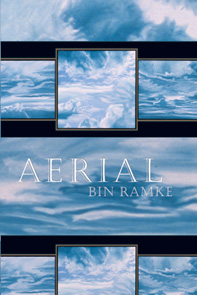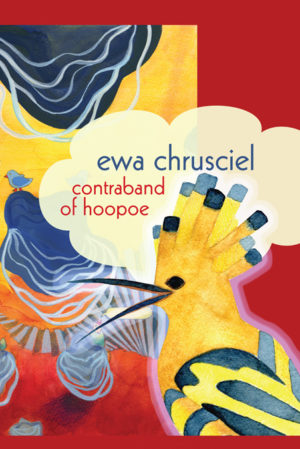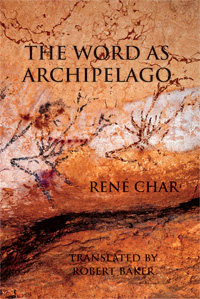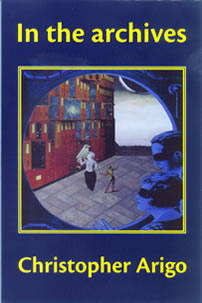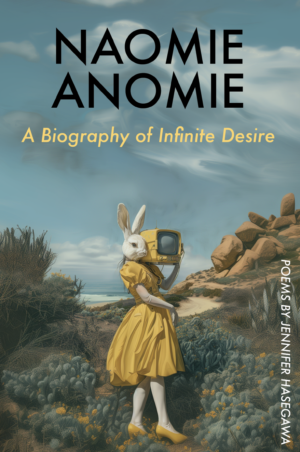Description
Aerial is concerned with the sky—its cloud-laden aspects in the first section, its dry realms of severe spirituality in the second. And as poetry is always about attention to language, the words “cloud” and “clod”—a shape of vapor and a shape of dirt—are key to this book’s antithetical obsessions. But so, too, are words such as “father,” “hunger,” and “edge.” The implied narrative behind the poems has to do with family, but especially with loss of family members and how the connections they once formed live on for good or ill. The frail human community—always touching earth and touched by sky, by winds, weather, and words as if from God or the gods—lies behind every stanza. Ramke’s early work in mathematics and his many years as a literary editor result in a diction and style which moves readily among scientific, religious, and literary discourse and discoveries. His desire to bring “fact” into the sharpest focus (remembering the connection between fact and manufacture) results in a tumbling sort of movement through the shadowy areas of consciousness into the boundary areas where knowledge is adventure.
One of The Volta‘s Best Books of 2013
For decades, Bin Ramke has been America’s most intelligent poet, the only one to take up the challenges of Wallace Stevens’ The Rock and to take them to new places where only courage, and the music of courage, can avail. But now, in Aerial, Ramke crosses all the way over to Wisdom. I never thought to say that, sometimes, a poem is more than poetry; but of the poems inAerial (please, gentle reader, note the pun on Ariel, Prospero’s winged intelligencer) this is simply the plain sense of things. Here, Ramke withholds nothing of his gift, his nature, his mind. The playful alliterations shape an unabashed psaltery. His love for the creatures (more Nietzschean than Franciscan and thus more boldly heartbroken) offers recourse to us all, here at the end of the human experiment. And above all, his devotion to language itself, not as a medium but as a species, avows that poems may be more than we shall ever live to say. With Aerial, Bin Ramke invents a wholly new kind of hope.
Donald Revell
To address the enormity of death, Ramke has taken the route of assembling a compendium of speakers from far and recent history and from all four quarters of world: Biblical Luke, 6th century Roman Boethius, French philosopher Jean-Luc Nancy, Austrian avant-garde novelist Peter Handke, Newton of gravity’s apple, and many others. Each contributes his or her small bit, from a sentence or two to a list torn from a larger text, leaving Ramke to build his brilliant poems around these fragments. In the end, Ramke’s mordantly succinct “Nothing left to read or reason” (a reprisal of Beckett’s “Nothing left to tell”) best expresses that last, and saddest, of all endings. These poems are beautiful, disquieting, deeply felt, and ultimately tragic—since Ramke, and all his stand-in speakers, keep reaching obsessively for knowledge about something they know is ultimately unfathomable.
Mary Jo Bang
At once rigorous and playful, Ramke’s poems exhibit a poignant engagement with the painful actualities of word, world, and mind. Aerial offers ‘a scraping of the page against page, obliteration’ combined deftly and delicately with an intimate, almost naked thoughtfulness. An exceptionally strong and varied book.
Brian Evenson
About the Author
Reviews
Excerpt
Bin Ramke, former editor of a book series for the University of Georgia Press, current editor of the Denver Quarterly and holder of the Phipps Chair in English at the University of Denver, studied mathematics in college before turning to poetry. Prior to that he spent a summer at age sixteen studying with topologist (and famously racist teacher) R.L. Moore at the University of Texas. He continues to see similar patterns arising from language and mathematics in all aspects of human consciousness and human behavior. His childhood in rural Louisiana and east Texas is also a part of the central concerns and beauty that his work tries to engage. But along with the beauty he experienced a particularly virulent ugliness, the racial hatred that was part of the American experience of the 1960s. The American South was an explicit and obvious force and subject in his first several books of poems but Ramke was never an easy fit into the “southern writing” category—probably for lack of adequate narrative. And yet in the last several books he has written extensively out of, or around, the devastations of hurricane and flood, especially Katrina and Rita, on the region.
A brief interview with Bin Ramke
(conducted by Rusty Morrison)
What are the primary concerns that influenced your writing in Aerial?
Aerial is concerned with the sky—its cloud-laden aspects in the first section, its dry realms of severe spirituality in the second. And as poetry is always about attention to language, the words “cloud” and “clod”—a shape of vapor and a shape of dirt—are key to this book’s antithetical obsessions. But so, too, are words such as “father,” “hunger,” and “edge.” The implied narrative behind the poems has to do with family, but especially with loss of family members and how the connections they once formed live on for good or ill. The frail human community—always touching earth and touched by sky, by winds, weather, and words as if from God or the gods—lies behind every stanza.
What aspects of your history and/or what particular obsessions of yours do you see apparent in these poems, now that the book is complete?
As I’ve aged, I have become more and more anxiously interested in ideas of Home. My mother was Cajun, so I grew up hearing her speak French to her father, to my aunts and uncles, but not to me. And I grew up Catholic during a time the mass was said in Latin. So languages I did not speak were more important to me, carried more weight, than did English. The meaning of words meant less than the rhythms and sounds they made, all this within the most intimate and significant of contexts.
Also, my early work in mathematics and many years as a literary editor result in a diction and style which moves readily among scientific, religious, and literary discourse and discoveries. Engineers and mathematicians might be pleased to see the way their methods and attitudes are examined and respected. Similarly, the use of Theological material might be of interest to those who are aware of the early Christian communities and anti-communities—monks, ascetics, hermits—even though they are used in unorthodox ways in this book.
Can you speak to the movement or formal structure of the poems?
My desire to bring “fact” into the sharpest focus (remembering the connection between fact and manufacture) results in a tumbling sort of movement through the shadowy areas of consciousness into the boundary areas where knowledge is adventure.
How did this book come to its title? Why did you choose this title?
An aerial (antenna) receives messages—condenses language out of air—which parallels the condensation of vapor into either the life-giving rain, or the threat of storm, or the failed condensation, the dry, severe air of the desert regions. But “aerial” also refers to things of the air—the aerial acrobatics of birds, for instance. Every poem in the book’s first section includes the word “cloud,” which is an aerial manifestation, and while clouds continue in the second section, it is a drier realm where absence counts more powerfully than presence. The air is drier, the messages received aerially are harsher.
Why would a reader want to choose to read this collection of poems now?
This is actually quite a good question, if unanswerable. A reader might be drawn into a world in which an abandoned religious sensibility still plays among the emblems of lost faith. I believe this book takes religious emblems and sensibilities and redirects the kind of attention we usually pay them, turns a new attention toward them. And in my possibly perverse way, I do think these poems offer a potential for consolation.
What continues to bring you to the act of writing a poem, what value might you see poetry having to its readers and to its writers?
I have come to see poetry as of continuing value to the world because it provides unique insight into the working of the mind—the poem is shaped by pre-conscious aspects of Mind in ways that teach us who we are and how we connect to each other and to the world. I have come to this conviction largely as a result of living closely with serious mental illness. It is not that poetry is of therapeutic or diagnostic use, but rather that poetry more than any other medium exposes the workings of the mind.
Who are the authors with whom you feel a kinship? Who are you reading currently? Do you see any direct or indirect similarities between their work and your own?
Nox, Anne Carson New Directions. The similarity is that her book is a response to the death of her brother—note that the title poem of mine is also a sort of elegy to Ken, my older brother who died just as Katrina made landfall… There is a way my last couple of books are elegies for my brother and mother, and that all my books since Wake are elegies for my mother and other unnamed family members. But I would also claim a similarity between Anne Carson’s book and mine in that she, too, evokes an authority outside of a self-conscious concept of poetry—in her case, classical studies. In my case, scientific studies. (Personal note—I admire her writing immensely and I do not offer her name in order to claim any sort of equality with her accomplishment.)
One With Others, C.D. Wright, Copper Canyon. This book also is often in the top hundred selling books of poems on Amazon’s site. The similarity in this case has to do with landscape and “southernness.” My book is not so explicit about locale, but there is a regional history evoked by both. Again I would make no claims about quality of my book in making this connection, but I do think C.D. Wright and I have shared something more than accidental in our books for some time.
Selected Poems, Robert Pinsky, Farrar, Straus, Giroux. I know that suggesting this kinship may seem surprising, but among Pinsky’s new poems he makes reference to his mother’s mental illness, he evokes religious traditions without expressing “belief” as such, and he shows an awareness and respect for traditional poetic forms—similar concerns and issues are expressed in my book. I am aware that few people who know about poetry would ever put us in the same category, but I see a usefulness to making what may seem surprising comparison.
In one of his finest books in a career spanning five decades, Ramke—who is a highly regarded experimental poet, an unflinching recorder of the intimacies between people, and an expert at deploying esoteric knowledge as metaphor—chooses the sky as the guiding figure for his 11th collection of poems. Ramke’s sky is something longed for, wished for, and out of reach (“I asked my brother is it possible/ to stand on a cloud, he said no”), also representing the ways loved ones are both near and distant at once
The ethereally adrift, eclectic, and often scientifically oriented intellect driving Bin Ramke’s poems has produced book after book of stunning, strange, and original verse. In his eleventh collection, Ramke’s characteristic associative and digressive use of the single word as a nexus for investigation—one whose gravitational force pulls in, then projects outward, whatever passes through its purview (“Old French espace meant time, // but shape was a word for sex / the organ—original. Ordinal, // or ordinary, // this secretly separate sifting / of a self particulate, drifting”)—is countered by a direct disclosure of grief: “When my brother died I felt / a new fear. This selfish response was a strange / reciprocal. I felt him as absence.”
Aerial is, and endeavors not to be, a book of mourning. Mourning is the denser air in the wild air of its circulations, where there is no kind of boundary—but, this last being so, “what is / the difference between this air and that?” (“Fair Weather Cumulus”). A dying mother bleeds into matter, matter into mother, childhood into adulthood, adulthood into childhood—all of which creates a confusion that is heard to bear and “a self particulate, drifting // like ice the elegant feel of it falling / into itself”; “elegant” but fundamentally foundationless. Ramke floats in the still, unhoping waters of reflection.
Migrations of Birds and Fishes
Nocturnal warnings fill us with desire
to know the arts of the birds
and the habits of fishes.
Our city, inhabited by shadows
of the migrants, feathery birds above
and below the river surface scaly
fish pass through darkly as we wave
at our windows, we sleepless
and full of fragments, dreams
and dreadful plans for tomorrow.
The land is the land, and home.
The water is the water, and home.
The light is the light is the air
and is its own home, we think.
What a contrite species this is
which does its damage by day and
by night regrets and dreams
or watches at windows.

